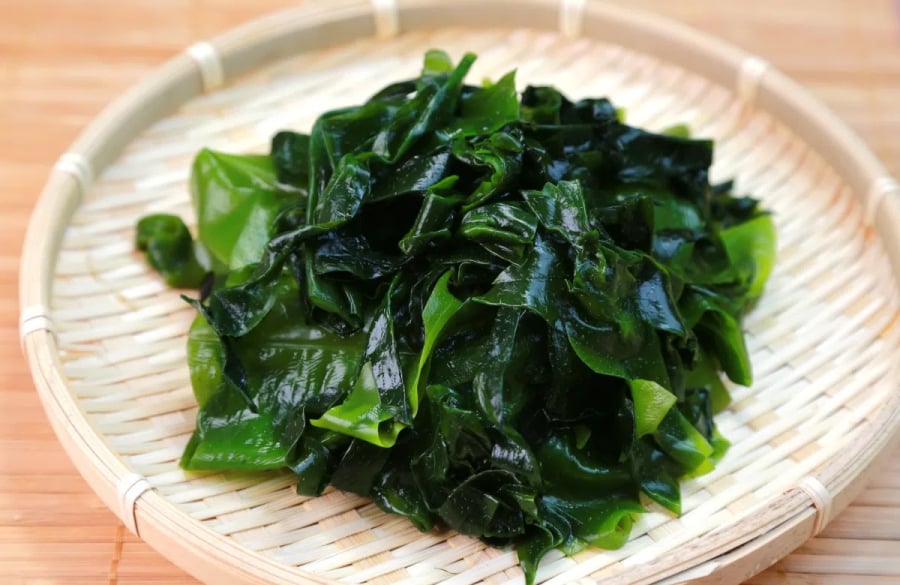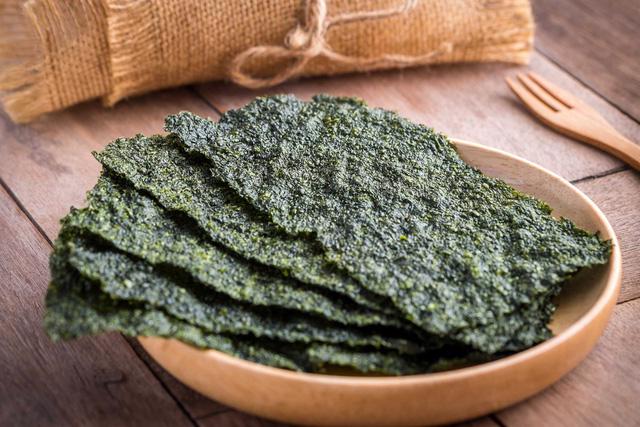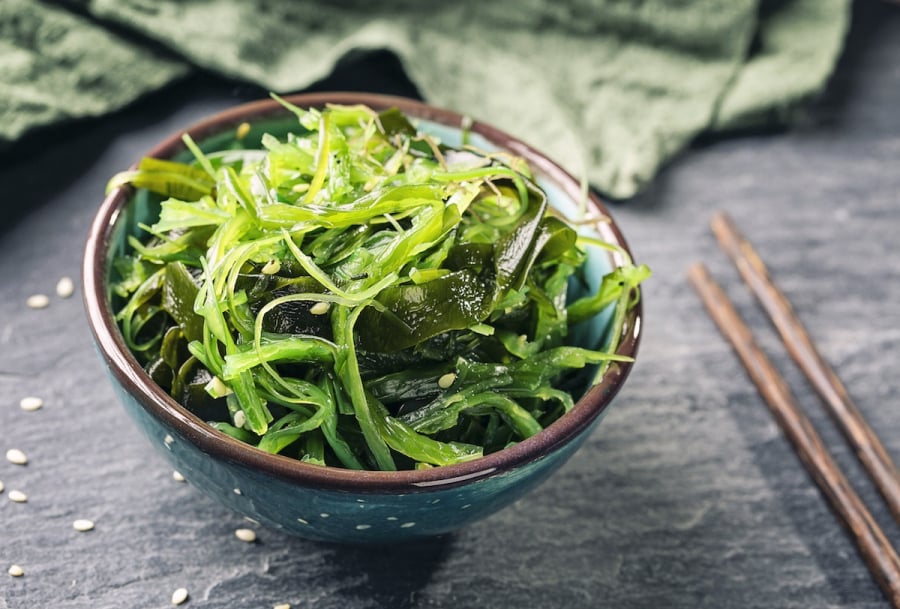Michiko Tomioka is a Japanese-born nutrition and longevity expert currently living and working in the United States. Growing up in Nara, a city renowned for its rich Japanese cuisine, Tomioka developed a deep passion and endless curiosity for flavors and the ingredients that make up the distinctive dishes.
As an adult, she dedicated her entire career to researching and developing plant-based diets. Apart from her professional work, Tomioka is a devoted mother and wife, always enjoying preparing delicious and nutritious meals for her family.
According to Michiko’s sharing on CNBC, one of the secrets to the long life expectancy of Japanese people is their favorite food – seaweed. Japan is famous for its approximately 1,500 varieties of seaweed, each offering unique flavors and nutritional values, depending on geographical location and climate conditions. This diversity has created the distinctive character of Japanese cuisine.
For Michiko’s family, seaweed is a staple food. Her mother and grandfather, who always included seaweed in their daily meals, instilled in her a habit and a special love for this type of food. Michiko believes that the regular consumption of nutritious foods like seaweed has contributed to her family’s good health and longevity. This is evident as Michiko’s mother lived to be 86, her aunt 99, her father-in-law 95, and her mother-in-law 88. Additionally, Michiko revealed that the family’s favorite daily dish is miso soup combined with wakame seaweed.

Seaweed is a staple in Michiko’s family
Numerous studies have shown that the healthy diet of the Japanese, with seaweed playing a crucial role, has helped the country achieve the highest life expectancy in the world, with men reaching an average of 80 years and women, 86 years.
Michiko Tomioka presents three main reasons to encourage everyone to consume seaweed daily:
Nutrient-rich
While each type of seaweed has different nutritional components, they all contain high amounts of fiber, both soluble and insoluble, which aid digestion, weight control, and gut health. Additionally, seaweed is a source of iron, iodine, potassium, calcium, magnesium, and polyphenols, natural compounds that possess anti-inflammatory, disease-preventive, and blood sugar-regulating properties.
Complete with Amino Acids and Omega-3: Seaweed contains all nine essential amino acids and omega-3 fatty acids, which promote cardiovascular health and cellular growth.
High in Calcium: According to Rodriguez, seaweed has a calcium content approximately seven times higher than milk, at about 264mg/100g. Notably, wakame seaweed can provide up to 15% of the daily calcium requirement, vital for bone development and the prevention of osteoporosis.

Each type of seaweed has different nutritional components but is high in fiber.
Seaweed is not just a healthy food but also perfect for diet and vegetarian menus
Research indicates that seaweed can absorb CO2 up to 20 times more than forests per unit area. This not only helps reduce atmospheric CO2 levels but also contributes to maintaining ecological balance and the habitat of marine life.
For those on a diet or following a vegetarian lifestyle, seaweed is an excellent choice. Michiko Tomioka reveals that she often uses kanten seaweed to create vegetarian jelly dishes, both savory and sweet, combined with azuki bean powder, citrus fruits, pumpkin, edamame, and cucumber. This style of eating offers multiple health benefits, including weight maintenance, digestive support, and effective blood sugar control.

Seaweed is a fantastic option for those on diets or following a vegetarian lifestyle.
Seaweed is versatile and can be used in many dishes
Seaweed is a safe and healthy food, not only popular in Michiko Tomioka’s daily diet but also among many Japanese people.
Some of the nutritious dishes that Michiko Tomioka particularly loves to make with seaweed include: miso soup with wakame seaweed, steamed vegetable salad with seaweed, seaweed-wrapped multigrain rice balls, fresh vegetables topped with shredded seaweed, and seaweed rice balls. Each dish offers a unique flavor and superior health benefits, making seaweed an indispensable component of daily meals.
“Super Veggies: Nature’s Secret to Anti-Aging and Vitamin Boost”
Diễm Trang, the stunning first runner-up of Miss Vietnam 2014, found herself struggling with body image issues post-pregnancy, despite her acclaimed beauty and perfection. Her secret to shedding the pounds was not just rigorous exercise but also an unconventional diet that included a humble vegetable – water spinach, or as the locals call it, “rau chân vịt.”



































